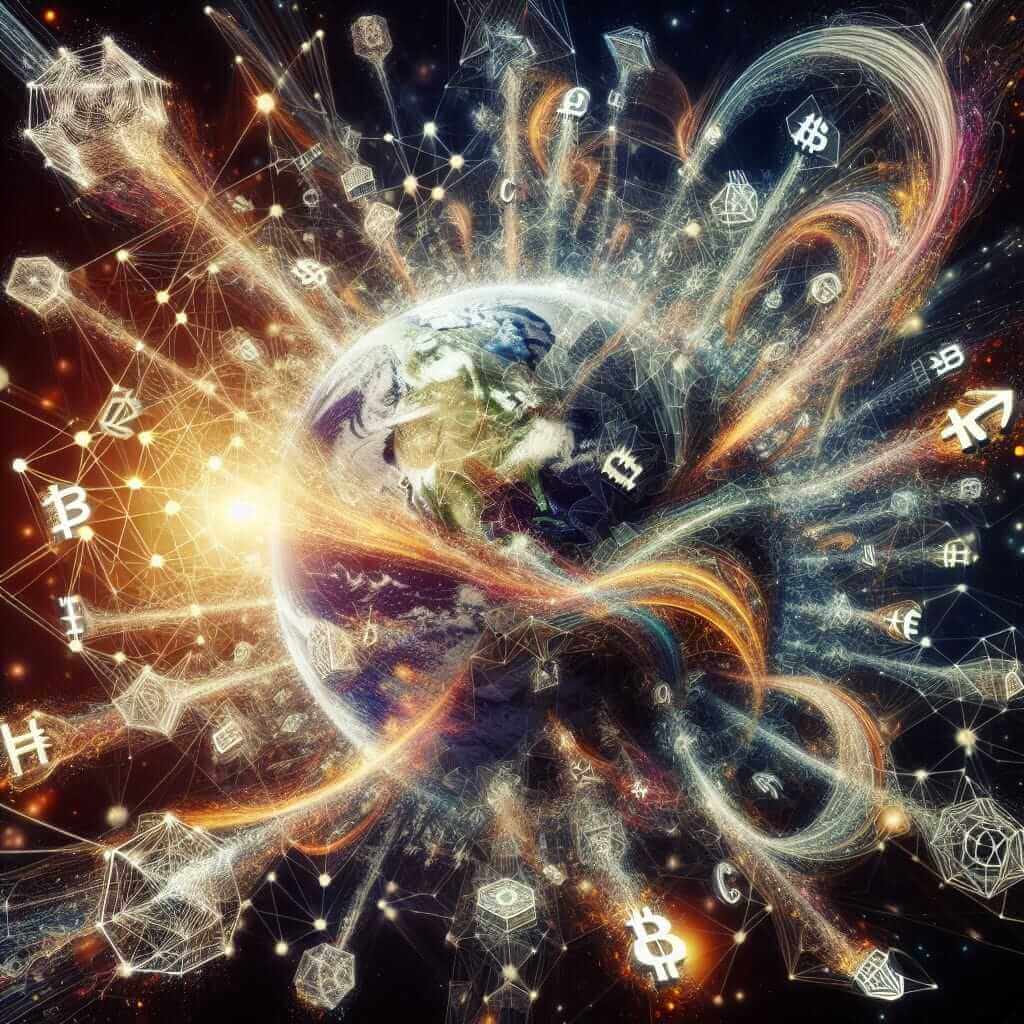The IELTS Reading test consists of three sections, each with a variety of questions that assess a candidate’s reading skills. These questions can include multiple-choice, true/false/not given, matching information, and more. As the global economy evolves, one of the most discussed topics is the impact of digital currencies on global markets. Given its increasing relevance, it is crucial for IELTS test-takers to be familiar with such contemporary issues.
Implications of Digital Currency on Global Markets has been a topic of interest not only among economists but also in educational contexts like the IELTS exam. This article will provide a comprehensive reading exercise based on this topic, helping candidates enhance their reading skills while preparing for potential exam questions.
Reading Passage
Digital Currencies and Their Impact on Global Markets
Introduction
Digital currencies, often referred to as cryptocurrencies, have revolutionized the financial landscape in recent years. Unlike traditional fiat currencies that are regulated by governments, digital currencies operate on decentralized platforms using blockchain technology. Their implications on global markets are profound and multifaceted.

Adoption and Acceptance
The adoption of digital currencies varies significantly across countries and sectors. Some nations, like El Salvador, have embraced bitcoin as legal tender, while others remain cautious. Financial institutions are also divided; some banks are integrating blockchain technology to streamline transactions, whereas others are wary of its volatility and regulatory challenges.
Economic Implications
Digital currencies present both opportunities and risks. On one hand, they offer a secure, transparent, and efficient means of transaction that transcends national borders. This has the potential to reduce transaction costs, promote financial inclusion, and enhance economic efficiency. On the other hand, the volatility of digital currencies poses significant risks. The rapid fluctuations in their values can lead to financial instability, potentially affecting the broader economy. Moreover, the anonymity associated with digital currency transactions can facilitate illicit activities such as money laundering and tax evasion.
Regulatory and Legal Challenges
The decentralized nature of digital currencies presents substantial regulatory and legal challenges. Governments and financial regulators are grappling with how to effectively oversee and control these currencies within their jurisdictions. The lack of a uniform regulatory framework across nations complicates international transactions and creates a fragmented legal landscape.
Future Perspectives
Looking ahead, digital currencies are likely to play an increasingly prominent role in the global economy. Innovations in blockchain technology and growing public and institutional acceptance suggest a future where digital currencies coexist alongside traditional financial systems.
Questions
Multiple Choice
-
Which statement best describes digital currencies?
- A) They are traditional currencies regulated by governments.
- B) They are centralized and operate under a global regulatory framework.
- C) They operate on decentralized platforms using blockchain technology.
- D) They are only used within specific countries.
-
What is a significant risk associated with digital currencies?
- A) They are universally accepted without any restrictions.
- B) They may contribute to financial instability due to their volatility.
- C) They are entirely anonymous and untraceable.
- D) They completely eliminate transaction costs.
True/False/Not Given
- True/False/Not Given: El Salvador has integrated bitcoin as a legal tender.
- True/False/Not Given: All countries have shown unanimous acceptance of digital currencies.
- True/False/Not Given: Digital currencies guarantee zero transaction costs.
Matching Information
- Match the following details to their respective paragraphs:
- Adoption and Acceptance
- Economic Implications
- Regulatory and Legal Challenges
Sentence Completion
- Digital currencies can reduce __ and promote financial inclusion.
- Governments are struggling with __ these currencies within their jurisdictions.
Answer Keys
- C
- Explanation: Digital currencies operate on decentralized platforms using blockchain technology, which distinguishes them from traditional, government-regulated fiat currencies.
- B
- Explanation: The volatility of digital currencies poses significant financial risks, potentially leading to economic instability.
- True
- Explanation: El Salvador has adopted bitcoin as a legal tender, making it an outlier in terms of digital currency acceptance.
- False
- Explanation: The acceptance of digital currencies varies greatly; not all countries have embraced them.
- Not Given
- Explanation: While digital currencies can reduce transaction costs, the statement does not guarantee zero transaction costs.
-
- Adoption and Acceptance: Paragraph 2
- Economic Implications: Paragraph 3
- Regulatory and Legal Challenges: Paragraph 4
- Transaction costs
- Effectively overseeing and controlling
Common Mistakes
- Misinterpreting questions: Students often misinterpret what is being asked, leading to incorrect answers. Carefully read each question to understand its requirements.
- Overlooking details: Pay attention to specific terms and details within the passage to avoid missing crucial information.
- Guesswork: Avoid making guesses without substantiation from the text, especially in True/False/Not Given questions.
Vocabulary
- Decentralized (adj) /ˌdiːsɛnˈtræl.aɪzd/: not controlled by a single authority.
- Volatility (n) /ˌvɒl.əˈtɪl.ɪ.ti/: the quality of being subject to rapid and unpredictable changes.
- Illicit (adj) /ɪˈlɪs.ɪt/: forbidden by law, rules, or customs.
Grammar Highlight
Usage of Gerunds and Infinitives
- Example: The adoption of digital currencies varies significantly across countries.
- Analysis: “varies” (verb) + “significantly” (adverb) accurately describe the varying patterns of digital currency adoption.
Tips for High Reading Scores
- Practice regularly: Regular practice helps improve speed and comprehension.
- Understand question types: Familiarize yourself with various question formats used in the IELTS test.
- Enhance vocabulary: A broad vocabulary base aids in better comprehension of diverse texts.
- Time management: Practice managing your time effectively during preparation to ensure completion within the allotted time during the actual test.